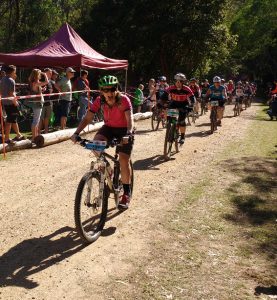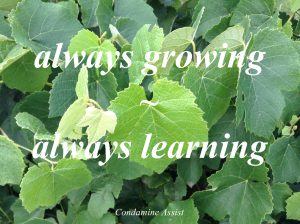When you open your mind to learning and growing, you discover opportunities everywhere around you. Over the past ten years, mountain biking has become a parallel universe for me to learn about myself and the world around me. As my enthusiasm for this style of learning has developed, so too has my love of mountain biking. I wanted to share my excitement with everyone around me and so I began my blog, Daisy Spoke. And my very first post in Daisy Spoke was “5 Things I’ve Learned About Life Through Mountain Biking”.
So ….. now here at last are another five ways that mountain biking has helped me to keep learning and growing as an individual!
1. Look up
 I instinctively look straight down in front of me when I ride my bike. This means I wobble a lot and react to every little lump and bump in the terrain. Having a one way staring competition with the trail right in front of me does me no favours. My imagination fixates on small details that don’t really matter. I didn’t even realise this was happening until I learnt at a coaching session the importance of looking up, to keep my eyes focused further along the track. This gets me into flow and enjoying a smoother, more connected ride. I’m still learning to trust myself, to have confidence that my brain has registered the terrain directly in front of me and that my body will know how to handle it. Every ride is a reminder to keep my sights focused ahead in all areas of my life – my work, my personal life, and my riding!
I instinctively look straight down in front of me when I ride my bike. This means I wobble a lot and react to every little lump and bump in the terrain. Having a one way staring competition with the trail right in front of me does me no favours. My imagination fixates on small details that don’t really matter. I didn’t even realise this was happening until I learnt at a coaching session the importance of looking up, to keep my eyes focused further along the track. This gets me into flow and enjoying a smoother, more connected ride. I’m still learning to trust myself, to have confidence that my brain has registered the terrain directly in front of me and that my body will know how to handle it. Every ride is a reminder to keep my sights focused ahead in all areas of my life – my work, my personal life, and my riding!
2. Absorb the bumps
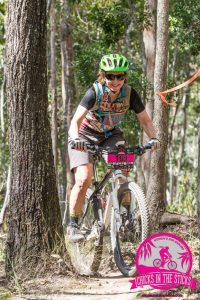
The bumps and jumps are all part of the fun of mountain biking – in fact a very large part of it! But it’s taken me a long time to see it that way. Fear of falling and lack of confidence creates tension which in turn leads to a rigid framework, sore muscles and stiff joints at the end of a ride. Learning to relax my stance and go with the bumps instead of resisting them is an ongoing process. Mountain biking gives me the opportunity to experience a sense of lightness instead of a sense of lack of control. I can visualise my legs as natural built-in shock absorbers. With improved inner resilience, or bounce-ability, I’m also able to relax a bit more in life in general, to see past the hiccups, and rise above the challenges.
3. Move around
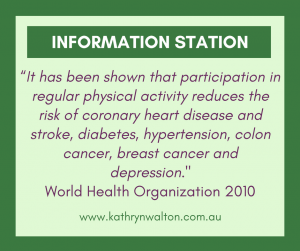 Having ridden mostly on smooth paved surfaces like roads and bicycle paths for most of my life, it’s been a huge learning curve getting onto mountain bike trails. You need to move your weight around constantly adjusting for the ever-changing terrain. Forward and back, side to side, up and down, as well as every possible combination of these movements. The hard lesson is that if you don’t shift your weight around you can’t get up that hill, or down that steep slope, or round that tight corner. Riding can quickly turn into hike-a-bike (which isn’t much fun) or hitting the ground (which also isn’t much fun). So when I ride I try to be conscious of how I move my body – above and around my bike frame. As in life, the more you move around, the more fun you’ll have and the healthier you’ll be.
Having ridden mostly on smooth paved surfaces like roads and bicycle paths for most of my life, it’s been a huge learning curve getting onto mountain bike trails. You need to move your weight around constantly adjusting for the ever-changing terrain. Forward and back, side to side, up and down, as well as every possible combination of these movements. The hard lesson is that if you don’t shift your weight around you can’t get up that hill, or down that steep slope, or round that tight corner. Riding can quickly turn into hike-a-bike (which isn’t much fun) or hitting the ground (which also isn’t much fun). So when I ride I try to be conscious of how I move my body – above and around my bike frame. As in life, the more you move around, the more fun you’ll have and the healthier you’ll be.
4. Be present in the moment
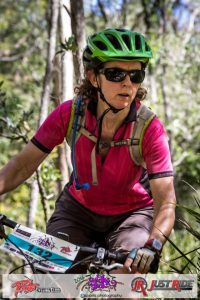
A distracted mind is on a road to mishap. At least, that’s my experience on my mountain bike and life in general. On my bike, the terrain is constantly changing and I need to keep my wits about me at all times. When I tune my sensory antennae into the environment around me, I’m fully present in the here and now. At least that’s the theory! The reality is that sometimes when I’m riding my mind wanders off and suddenly, oops, there it is, a rut the size of the Grand Canyon about to swallow me and my bike. It’s an ongoing learning process of training my brain to come back to the present, Not only does this make me safer on my bike, the ride is heaps more fun too. The same technique applied to other areas of life can lead to more satisfying relationships, more efficient and effective business decisions, and reduced anxiety.
5. Keep trying!
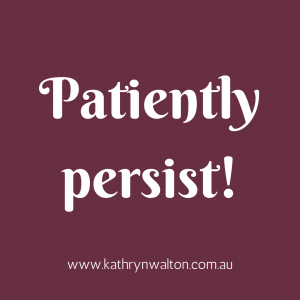 Throughout life I’ve tended to focus my energy and attention on things that come most easily to me. If I couldn’t do something perfectly the first time, I’d usually move on to the next thing fairly quickly. As far as mountain biking goes, I’d had a few short rides on unpaved paths and paddocks over the years but didn’t develop much interest in “that kind of riding”. I’d fallen off a few times so there wasn’t a lot of incentive to keep going, so my bike tended to stay in the garage most of the time. A few years ago I decided to give it another go. Maybe there was an inner knowing that it would open up a whole new world to me, that there was much more to be gained from riding than simply mountain biking skills. With the support of my Courage Coach, I learned to develop persistence and this has had a profound impact on me. I’ve discovered how valuable persistence can be when life gets tough and I feel like giving up. Persistence speaks to that fiercely determined part of my soul and keeps me trying, practising, modifying, trying again, and finding ways to bring my hopes and dreams into reality. I’ve learned that I can work really hard at things that don’t come naturally to me and to experience immense satisfaction from that!
Throughout life I’ve tended to focus my energy and attention on things that come most easily to me. If I couldn’t do something perfectly the first time, I’d usually move on to the next thing fairly quickly. As far as mountain biking goes, I’d had a few short rides on unpaved paths and paddocks over the years but didn’t develop much interest in “that kind of riding”. I’d fallen off a few times so there wasn’t a lot of incentive to keep going, so my bike tended to stay in the garage most of the time. A few years ago I decided to give it another go. Maybe there was an inner knowing that it would open up a whole new world to me, that there was much more to be gained from riding than simply mountain biking skills. With the support of my Courage Coach, I learned to develop persistence and this has had a profound impact on me. I’ve discovered how valuable persistence can be when life gets tough and I feel like giving up. Persistence speaks to that fiercely determined part of my soul and keeps me trying, practising, modifying, trying again, and finding ways to bring my hopes and dreams into reality. I’ve learned that I can work really hard at things that don’t come naturally to me and to experience immense satisfaction from that!
Read PART 1 of this article (my very first ever blog post!) “5 Things I’ve Learned About Life Through Mountain Biking” including:
- Look where you want to go
- Lean into what you most fear
- Going slow is ok
- Take a break when you need it
- Practice, practice, practice
Discovering mountain biking as life’s ultimate parallel universe in her middle age, 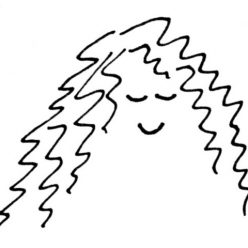 Kathryn Walton shares information and reflections in Daisy Spoke that connect, inspire and self-empower women to make healthy choices for themselves. She integrates her love of physical exercise, family, nature, gardening and creative arts with her professional background in mental health social work to facilitate change with individuals, groups and communities of women who are committed to living life to the full.
Kathryn Walton shares information and reflections in Daisy Spoke that connect, inspire and self-empower women to make healthy choices for themselves. She integrates her love of physical exercise, family, nature, gardening and creative arts with her professional background in mental health social work to facilitate change with individuals, groups and communities of women who are committed to living life to the full.
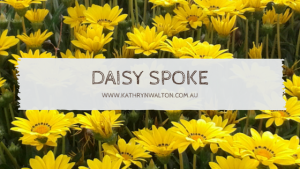
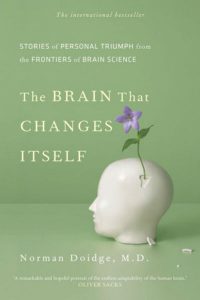

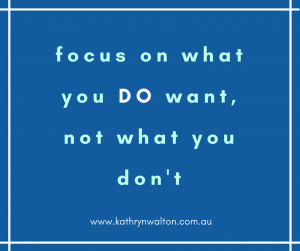
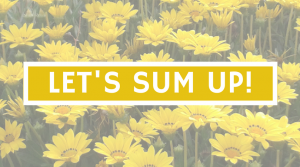
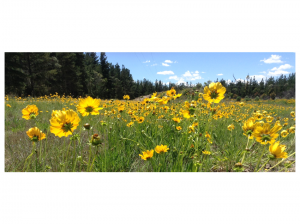
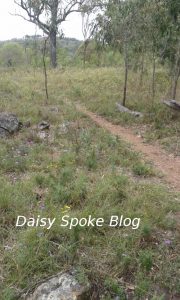 and scrapes and a strained muscle in my chest. Nothing too bad really if you ignore the fact that I was aiming to improve my confidence through increasing my time on the bike!
and scrapes and a strained muscle in my chest. Nothing too bad really if you ignore the fact that I was aiming to improve my confidence through increasing my time on the bike!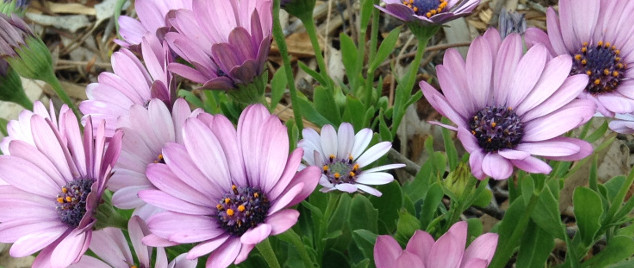
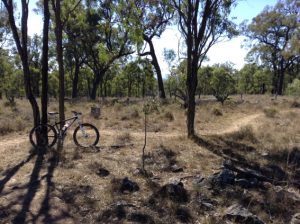
![Actually_I_can[1]](https://www.kathrynwalton.com.au/wp1/daisyspoke/wp-content/uploads/sites/2/2016/08/Actually_I_can1-150x150.jpg)
